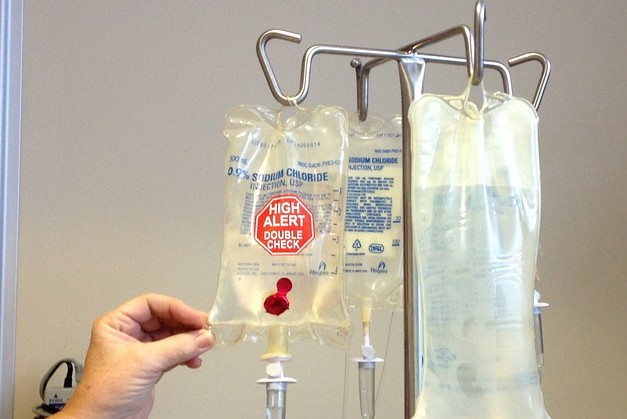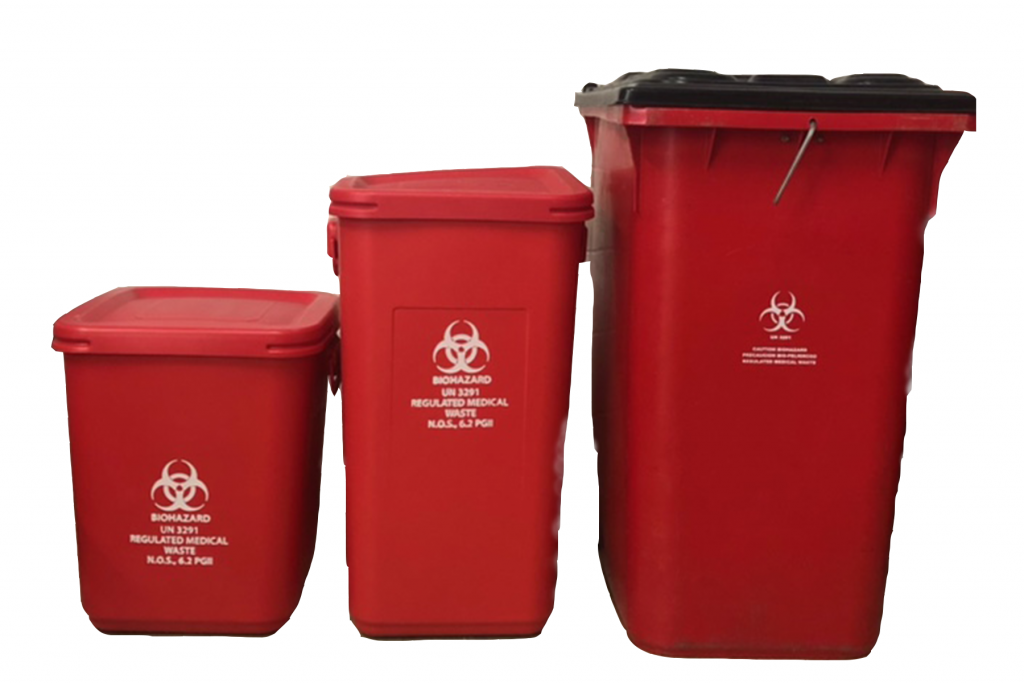Medical Waste Removal Excellence: Elevating Security Criteria in Your Facility
Medical Waste Removal Excellence: Elevating Security Criteria in Your Facility
Blog Article
Keep Ahead of Rules: Expert Guidance on Medical Waste Disposal
In a world where the healthcare industry is regularly developing, it is vital for medical centers to stay ahead of policies when it comes to the correct disposal of clinical waste. From understanding the various groups of medical waste to applying the ideal collection and segregation methods, this conversation will offer workable ideas and beneficial insights to help centers stay in advance of policies in the ever-changing landscape of clinical waste disposal.
Understanding Medical Waste Categories
Understanding clinical waste categories is necessary for proper disposal and monitoring in healthcare centers. Clinical waste refers to any kind of waste generated by healthcare tasks that may present a threat to public health and wellness or the setting. It is essential to classify medical waste precisely to guarantee its safe handling, disposal, transport, and treatment.
There are numerous categories of medical waste that healthcare facilities require to be knowledgeable about. The most common classifications include transmittable waste, pathological waste, sharps waste, pharmaceutical waste, and chemical waste. Each group has specific guidelines and guidelines for its correct administration and disposal.
Pathological waste refers to human cells, organs, or body parts that require unique handling and disposal. Pharmaceutical waste comprises run out, extra, or polluted medications that require careful handling and disposal.
Remaining Up-To-Date With Regulatory Modifications
Remaining existing with regulatory adjustments is important for health care facilities to ensure compliance and proper management of clinical garbage disposal. medical waste removal services. With guidelines constantly evolving, it is crucial for medical care facilities to stay current to avoid fines, penalties, and potential injury to the atmosphere and public health
To stay ahead of governing changes, medical care facilities should establish a system for monitoring and monitoring updates. This can be done by subscribing to governing newsletters, participating in workshops and meetings, and actively joining market associations. Furthermore, facilities must assign a personnel member or team liable for staying educated and distributing details to appropriate stakeholders.
Routine interaction with regulative firms is also vital. Healthcare facilities need to establish connections with neighborhood, state, and federal companies to ensure they know any modifications in regulations that may impact their waste monitoring practices. This can be done with normal conferences, participation in public remark periods, and proactive interaction with governing agencies.
In addition, health care facilities must consider partnering with waste administration firms that focus on clinical waste disposal (medical waste disposal services with WasteX). These firms are usually skilled in the current laws and can provide assistance and support to make sure compliance
Executing Correct Collection and Partition Approaches
To properly handle clinical garbage disposal, medical care centers have to develop appropriate collection and partition techniques based on regulative guidelines. Executing these approaches makes certain the secure handling and disposal of possibly harmful products, safeguards the atmosphere, and lessens the danger of injuries and infections to health care workers and the public.
Correct collection and partition approaches entail the usage of assigned containers and labeling systems. Healthcare centers need to give plainly labeled containers for different kinds of clinical waste, such as sharps, transmittable waste, pharmaceutical waste, and non-hazardous waste. These containers ought to be color-coded and clearly significant to prevent confusion and advertise very easy recognition.
Furthermore, health care facilities ought to educate their team on the right procedures for accumulating and segregating medical waste. This consists of informing them on the different kinds of waste, the suitable containers to use, and the relevance of adhering to standards and policies. Regular training sessions and correspondence course must be conducted to guarantee that staff members continue to be updated on finest methods.
Furthermore, medical care facilities ought to develop a system for normal collection and disposal of clinical waste. This might include partnering with licensed waste monitoring companies that concentrate on medical waste disposal. These firms will ensure that the gathered waste is transferred and disposed of in compliance with governing requirements.
Picking the Right Disposal Methods

Incineration is just one of one of the most effective and common methods for getting rid of particular sorts of clinical waste, such as pathological waste and sharps. It entails the regulated burning of waste at high temperature levels, lowering it to ash. Incineration can release damaging toxins into the air and contribute to air pollution.

Various other disposal methods consist of chemical treatment, microwave treatment, and landfilling. Chemical therapy includes using chemicals to disinfect and neutralize the waste. Microwave therapy utilizes microwave power to heat and disinfect the waste. Landfilling includes hiding the waste in a designated garbage dump location have a peek at these guys (medical waste disposal services with WasteX). Landfilling ought to be the last resort due to the possible threat of contamination to soil and groundwater.
Making Sure Compliance With Documents and Training
After meticulously considering the appropriate disposal approaches for you can try here clinical waste, medical care centers have to make certain conformity with laws and decrease ecological effect by applying effective documentation and training treatments. This action is vital in preserving a risk-free and lasting environment for both healthcare employees and the basic public.

Health care workers who deal with medical waste ought to receive proper training on waste segregation, handling, and disposal treatments. By supplying thorough training, health care facilities can equip their team to make educated decisions and reduce the risk of improper waste disposal.
Verdict
In verdict, staying in advance of laws in clinical waste disposal is important for health care facilities. medical waste removal near me. Understanding the different groups of clinical waste, staying upgraded with regulative changes, implementing correct collection and partition techniques, choosing the ideal disposal techniques, and guaranteeing conformity with paperwork and training are all essential actions. By following these guidelines, health care organizations can successfully take care of and get rid of of medical waste in a accountable and secure manner
From recognizing the different categories of medical waste to implementing the appropriate collection and segregation approaches, this discussion will certainly offer actionable pointers and important understandings to help centers remain in advance of policies in the ever-changing landscape of clinical waste disposal. - medical waste disposal services with WasteX
The most typical groups include contagious waste, pathological waste, sharps waste, pharmaceutical waste, and chemical waste. Medical care facilities ought to supply plainly classified containers for different types of medical waste, such anchor as sharps, infectious waste, pharmaceutical waste, and non-hazardous waste. Medical care centers need to develop a thorough system to record and track all facets of clinical waste disposal, including types of waste generated, quantities, and disposal approaches made use of. Medical care employees that manage medical waste ought to obtain proper training on waste partition, managing, and disposal procedures.
Report this page